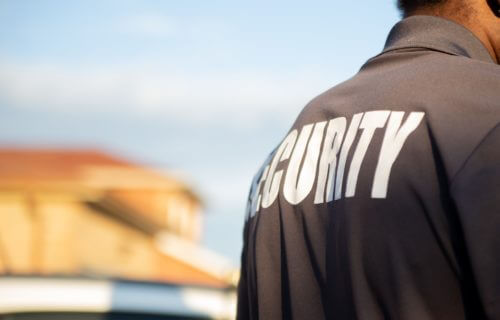BALTIMORE — Students who feel like their school is a prison are more likely to have lower test scores and not attend college, suggests researchers from Johns Hopkins University. Their study found that an increased security presence contributes to students having a negative perception of their educational experience.
Schools have beefed up their security after multiple deadly school shootings in recent years. The most recent school shooting in a Texas elementary school caused the death of multiple teachers and an entire classroom of children. However, the current study finds that constant surveillance and increased security presence deters a student’s motivation to want to learn, finding the entire experience too troublesome.
“When schools feel like prisons, the impact isn’t localized to the students perceived as problematic —it has collateral consequences for kids irrespective of their behavior,” says study co-author Odis Johnson, a Bloomberg Distinguished Professor of Social Policy and STEM Equity, in a media release. “We’re suggesting there is a safety tax that all students pay in those schools.”
Johnson and his team have been studying racial disparities in the education system and in law enforcement, including how school discipline affects educational outcomes. The current study aimed to examine how the presence of security surveillance influences scholastic achievement.
More school security also linked to more suspensions
School security includes having metal detectors, random metal detector checks, closing campuses for lunch, random dog sniffs, random contraband sweeps, drug testing, uniform requirements, dress codes, clear book bag requirements, security cameras, and having ID present at all times for students and staff.
“We understand that surveillance is part of schools’ security and safety responsibilities, but we also know that the primary mission of schools is to educate kids and we wanted to know if fortifying schools in this way related in any way to the primary mission of educating kids and sending them off to college,” explains Johnson.
The researchers collected data from national education surveys to design a model of educational attainment in schools with high surveillance versus those with less surveillance. The model excluded social and economic background data, which could affect outcomes such as being able to afford college.
Schools with increased security showed higher suspension rates and were more likely to deliver regular punishment to students. Black students were four times more likely than students of other races to be in high surveillance schools and have the highest suspension rates.
Even when the researchers controlled for in-school suspensions, results show high surveillance continued to impact students’ success. Not only did students from these schools have lower math test scores, but they were also less likely to enroll in college.
In the model, the researchers factored out surveillance and found a greater rate of young Black girls entering college and the math test gap disappearing. The findings suggest heightened security delivers a message that students are not safe and feel treated like criminals, deterring them from prioritizing school.
“These are ways,” Johnson notes, “that students feel less like students and more like suspects,”
The study is published in the Journal of Criminal Justice.

This sounds like a questionable study out of Baltimore, that had a pre planned goal of defunding school security.
If school security is in response to a rise in gangs/drugs/violence/guns/alcoholism, then how can it be determined if the grades are failing due to the negative student behaviors or the security. The bad behavior of students can have more on an impact on a classroom and the learning process, than a security officer stationed down the hall.